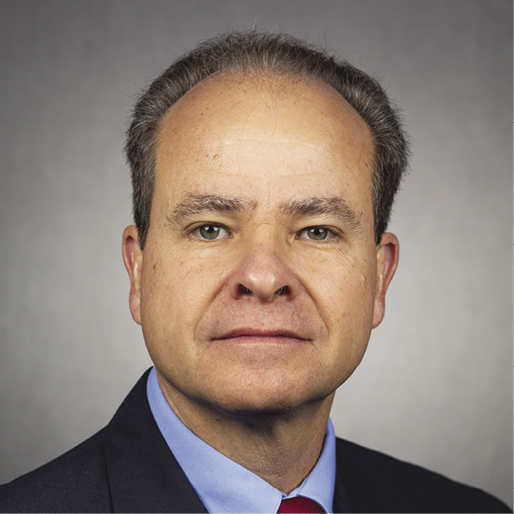José Dubeux, Ph.D.
Professor of Agronomy
Institute of Food and Agricultural Sciences
2023 Awardee
José Dubeux, agronomy professor at the UF/IFAS North Florida Research and Education Center in Marianna, focuses on sustainable livestock production systems. He is internationally recognized as an authority on ecosystem services in grasslands, silvopasture systems, and use of cactus as fodder.
The cattle and related livestock industry sectors contribute $7.7 billion in annual value added to the state economy. This includes beef and dairy cattle, horses, and small ruminants like sheep and goats.
“My goal is to link local with global challenges, translating the science to develop sustainable livestock systems,” he said. “We want to help livestock producers reduce inputs — fertilizers, fossil fuel use, machinery costs and the like — while keeping the system productive.”
Dubeux’s 30% Extension appointment helps him put this research into practice.
Recently, rising fertilizer costs have clarified Dubeux’s focus into forage production systems with a nitrogen-fixing legume component. He has received funding from the United States Department of Agriculture’s National Institute of Food and Agriculture and Florida Department of Agriculture and Consumer Services to conduct this work. Legumes have the potential to improve cattle diet while reducing the need for fertilizer.
Grazing is another component of sustainable livestock production, but North Florida farms are currently unable to support cattle grazing during the transitions between the cool and warm seasons. Among Dubeux’s goals is to see cattle able to graze 365 days a year. Another avenue toward more sustainable production pairs livestock systems with row crop production. He spearheaded the launch of the Southeast Grazing Exchange, which facilitates a connection between ranchers with livestock and landowners with grazing space.
“Cover crops reduce nitrate leaching, and that grazing cover crops are even better for keeping nutrients in place for the next cash crop,” he said. “But planting cover crops is expensive, and even though the benefits of cover cropping are well-known, there is an economic barrier for many farms.”
Dubeux hopes to see increased adoption of the exchange, leading to opportunities to evaluate nutrient cycling in action.
In his career, Dubeux has published 285 peer-reviewed articles, including 160 in the past five years. He also has chaired 40 graduate student committees. He has secured about $2.5 million in grants as principal investigator and around $10.4 million as co-PI. Dubeux is a fellow of the American Society of Agronomy and Crop Science Society of America.


